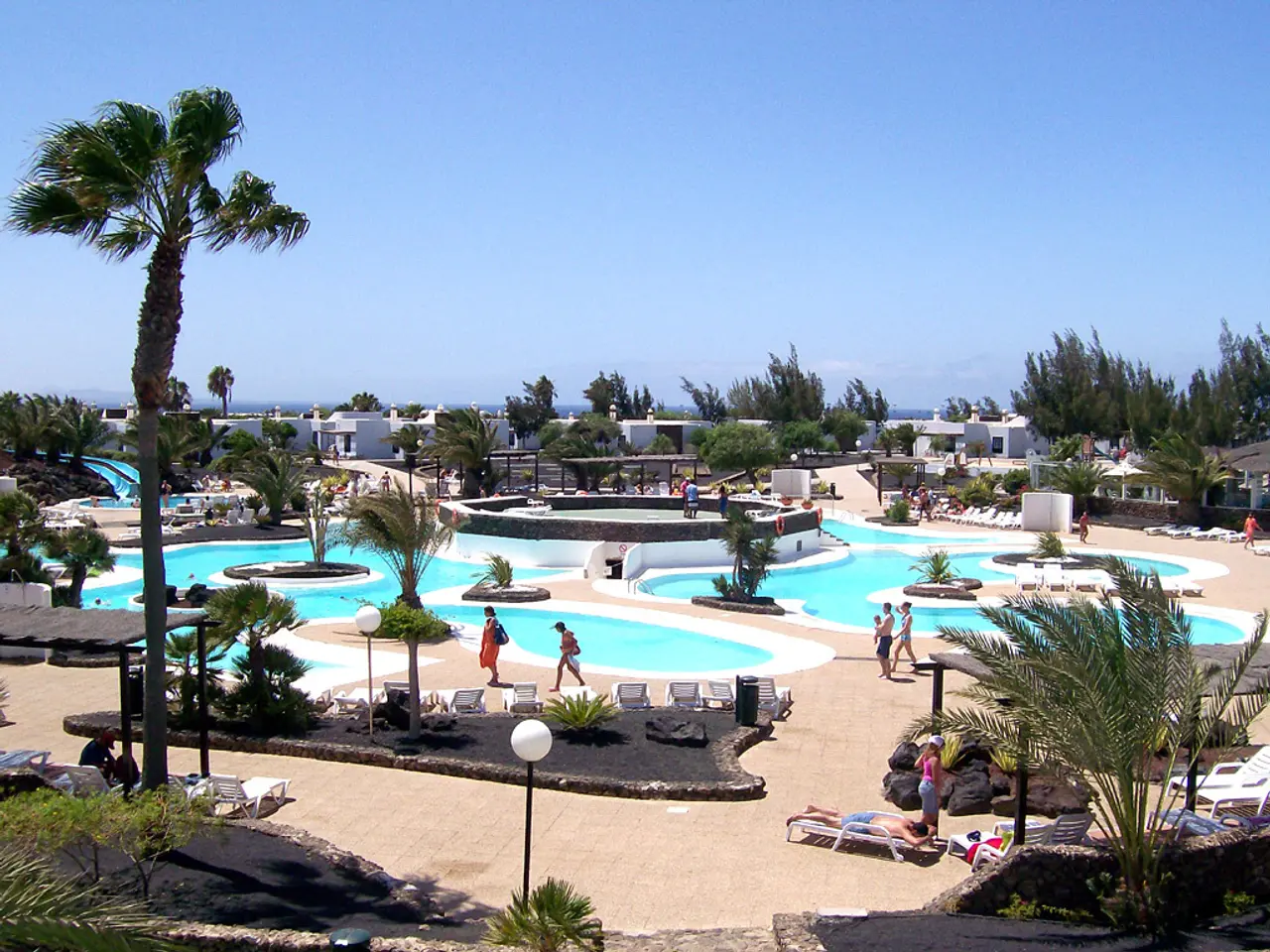Schwesig claims that greater visitor counts aren't the only issue at hand - Focus isn't solely on the quantity of attendees.
Mecklenburg-Vorpommern, a region known for its picturesque landscapes and rich cultural heritage, continues to thrive in the tourism industry. The number of guest overnight stays has more than tripled since the early 1990s, reaching almost 33 million in 2024.
Recently, Economics Minister Wolfgang Blank (independent) and the chairman of the state tourism association, Alexander Winter, convened a meeting to discuss the future of tourism in the region. The focus of the discussion included the planned new state-owned tourism GmbH, Mecklenburg-Vorpommern Tourism GmbH, which is set to begin operations on October 1.
One of the key efforts in this new venture is the extension of the peak season, a strategy aimed at attracting visitors throughout the year. This involves creating new experiences and cultural events in shoulder and off-peak seasons.
The region is also placing a strong emphasis on sustainability and quality over quantity. Eco-friendly tourism and maritime economy initiatives are being promoted, aligning with broader regional strategies such as Mecklenburg-Vorpommern’s Maritime Future Concept. This approach strengthens the region's maritime economy with quality and sustainability priorities.
Innovations and digital transformation are also integral to the region's tourism strategy. These efforts aim to enhance visitor experience and tailor tourism services, following best practices seen in comparable European areas.
The region is also leveraging EU funding and cooperation platforms to invest in infrastructure, sustainability projects, and visitor services that boost the region’s long-term attractiveness. This approach generates more economic value per visitor rather than just increasing visitor volume.
During her summer tour, Minister President Manuela Schwesig visited the Supieria Wake- and Water Park in Rostock, which features a sandy beach, catering facilities, a sun terrace, and a water ski and wakeboard facility. The economics ministry provided around 844,000 euros in funding for this park's development.
Schwesig emphasized that the goal in Mecklenburg-Vorpommern's tourism industry is not just to increase visitor numbers, but to extend the peak season, generate value, and improve quality. Alexander Winter also emphasized the importance of completing the process of transferring the tourism association to the Mecklenburg-Vorpommern Tourism GmbH promptly.
While specific Mecklenburg-Vorpommern projects are not detailed in the search results, the region is part of broader Baltic Sea and German industry initiatives emphasizing a shift toward sustainable, value-generating, and quality-enhancing tourism development beyond peak season volume growth.
In MV, there is a company called New Tourism GmbH, but the context of its role or purpose is not provided in the paragraph.
As Mecklenburg-Vorpommern moves forward with its tourism strategy, it is clear that the focus is on extending the peak season, generating value, and improving quality, rather than just increasing visitor numbers. This approach promises a sustainable and prosperous future for the region's tourism industry.
- In the meeting concerning the future of tourism in Mecklenburg-Vorpommern, the finance of the new state-owned tourism GmbH, Mecklenburg-Vorpommern Tourism GmbH, is likely a key discussion point.
- The lifestyle of visitors in Mecklenburg-Vorpommern is set to change with the implementation of innovations and digital transformation, aiming to enhance the visitor experience and cater to diverse preferences.
- As part of its tourism strategy, Mecklenburg-Vorpommern is collaborating with EU funding and cooperation platforms to invest in projects that prioritize sustainability, infrastructure, and quality services, thereby improving its attractiveness and generating more economic value per visitor.





